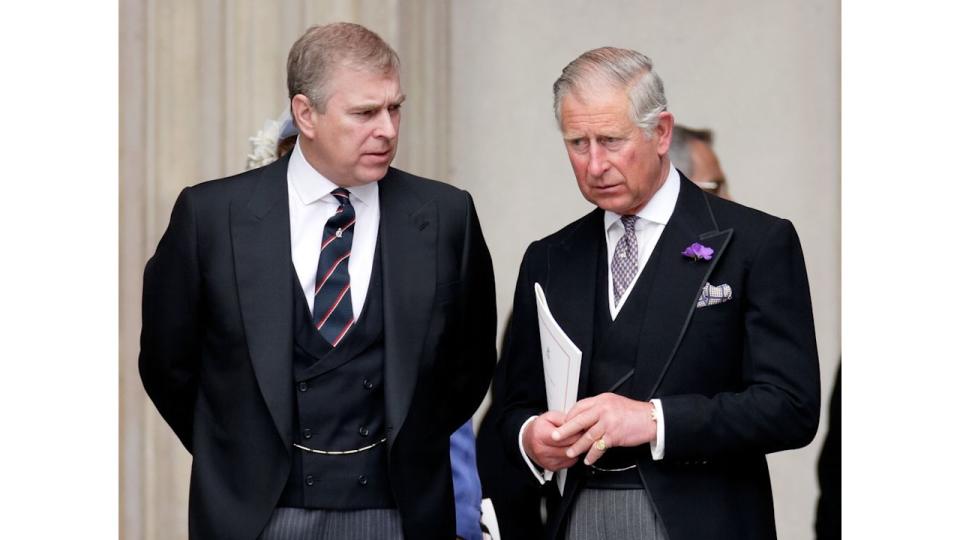Prince Andrew didn't receive inheritance from the Queen after her death - details

Prince Andrew had already received his sizable inheritance by the time of his mother's passing in September 2022, according to a new book by acclaimed royal biographer Robert Hardman.
Hardman's new book, Charles III: New King, New Court, The Inside Story, was released on Thursday and delved deeper into the Duke's financial standing after he was stripped of his title and thus, any taxpayer funding.
In the book, which was serialised in the MailOnline, the royal expert explained that Andrew's brother, King Charles III, offered to move him out of his home at the Royal Lodge to Frogmore Cottage, where the Duke and Duchess of Sussex lived before moving to the US, to save money on security.
You may also like
Prince Harry and Meghan Markle's royal residence clash with Prince Andrew
King Charles takes 'decisive' action over Prince Andrew's finances - report
Prince Andrew welcomes Jack Brooksbank into the family with very official nod
The Cottage is a far cry from the Lodge; Andrew would be downsizing from a 30-room home to a five-bedroom one.

According to Hardman, the King would stop paying Andrew's living allowance if he refused the offer to move; Andrew "had assured the Palace that he would be able to meet all these bills through a combination of money left him by the Queen and his own commercial activities".
Royal insiders told Hardman, "If he can find the money, then that is up to him, but if not, he will find that the King does not have unlimited patience."

For his part, King Charles inherited the Queen's £650 million estate after her death, while Princess Anne and Prince Edward continue today to receive funds from the Sovereign Grant as working royals.
Prince Andrew, however, relied on the King bestowing an allowance upon him, which was reported to be £1 million annually according to the book, as well as the inheritance he received from Queen Elizabeth before she passed away.
Hardman wrote, "While the Duke may find the money to cover the bills for one or two years, the position may not be sustainable once he passes retirement age."

More recently, Andrew was informed by the monarchy's finance director that he would no longer receive a living allowance from his brother.
"The Duke is no longer a financial burden on the King," a royal insider told Hardman in his book.

"He claims to have found other sources of income related to his contacts in international trade, sufficient to cover all his costs– which would be a welcome outcome for all parties if that turns out to be the case. But as to whether this funding can be relied upon in the long term is another matter."
Another expense for the Duke to consider when spending his inheritance is that of security. The Royal Lodge is outside the cordon of private security, which is taxpayer-funded for the royals.

According to the book, the security contract that protects Andrew in his home costs "a substantial seven-figure sum annually", prompting Charles to encourage the Duke to move to Frogmore Cottage, within the cordon of protection.
The late Queen was footing his private security fees until her death, and as he refused to move out of the Lodge, he may have to foot those bills himself with his inheritance, said Hardman.


